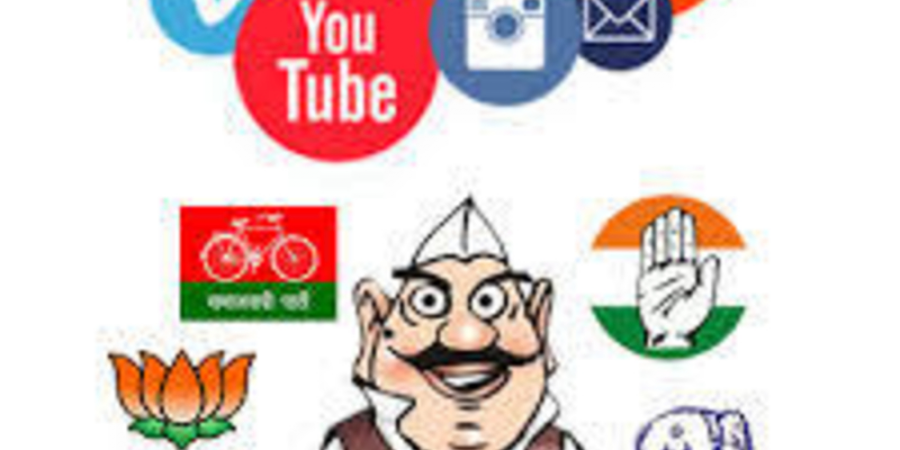

Social media has become a cornerstone of Indian politics, fundamentally altering the way political campaigns are run, leaders interact with citizens, and voters form their opinions. Platforms like Twitter, Facebook, Instagram, and YouTube, along with regional networks like ShareChat, have emerged as powerful tools for political communication and mobilization in a country with over 700 million internet users.
The impact of social media on Indian politics began to be noticeable around the 2014 general elections, often termed India's first "social media election." Political parties, especially the Bharatiya Janata Party (BJP), used platforms like Twitter and Facebook to reach a tech-savvy electorate. Since then, social media has become indispensable for political parties and leaders, influencing election strategies at the national and state levels.
Social media platforms have redefined election campaigns, enabling parties to bypass traditional media channels and communicate directly with voters. Leaders like Narendra Modi and Rahul Gandhi have millions of followers, using their profiles to share their vision, policies, and updates in real-time. Platforms also allow political parties to target specific demographics with tailored messages, ensuring broader and more efficient voter outreach.
Social media serves as a battleground for shaping narratives and influencing public opinion. Political debates, trending hashtags, and viral videos play a significant role in setting the agenda and framing issues. Campaign slogans and policies are often tested and popularized on social media before they appear in mainstream media.
From organizing rallies to creating virtual communities, social media has become a powerful tool for political mobilization. Movements like the Anna Hazare-led anti-corruption protests in 2011 and the farmers' protests of 2020-2021 leveraged platforms like Twitter and WhatsApp to organize and sustain momentum.
Social media enables politicians to communicate in real-time, responding to crises, addressing controversies, or sharing important announcements. This immediacy helps leaders appear accessible and responsive to their constituencies.
Paid promotions on platforms like Facebook and YouTube have become a staple of political campaigns. Parties invest heavily in digital ads to boost visibility and target voters based on age, location, language, and interests.
With a large segment of India’s population being under 35, social media is instrumental in engaging first-time and young voters. Meme culture, interactive posts, and influencer collaborations are often employed to connect with this demographic.
Social media has been criticized for being a breeding ground for fake news and propaganda. Misleading information, often spread through WhatsApp forwards or unverified posts, can polarize communities and influence electoral outcomes.
Algorithms on platforms often create echo chambers, where users are exposed only to content that aligns with their existing beliefs. This deepens political divisions and reduces the scope for balanced discourse.
The use of data analytics for micro-targeting voters raises concerns about privacy. Scandals like the Cambridge Analytica incident have highlighted the potential misuse of user data for political purposes.
Social media is often plagued by trolling and abusive behavior, with political leaders, journalists, and activists being frequent targets. This toxic environment can discourage healthy debate and participation.
The regulation of political content on social media remains a gray area. While platforms attempt to moderate content and flag misinformation, accusations of bias and inconsistent enforcement persist.
The role of social media in Indian politics is set to grow with increasing internet penetration and digital literacy. Political parties are likely to invest more in artificial intelligence and data analytics to fine-tune their strategies. Simultaneously, the need for robust regulation to tackle misinformation, protect privacy, and promote transparency will become more pressing.
Social media has democratized political communication in India, providing a platform for both leaders and citizens to engage directly. While it offers numerous benefits, its challenges cannot be overlooked. To harness the positive potential of social media in politics, stakeholders must work towards creating a balanced and ethical digital ecosystem that enhances democratic processes rather than undermines them.
